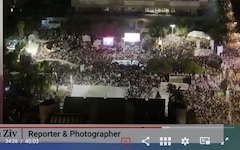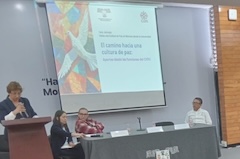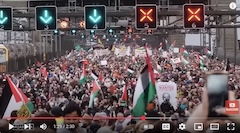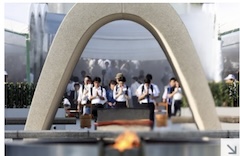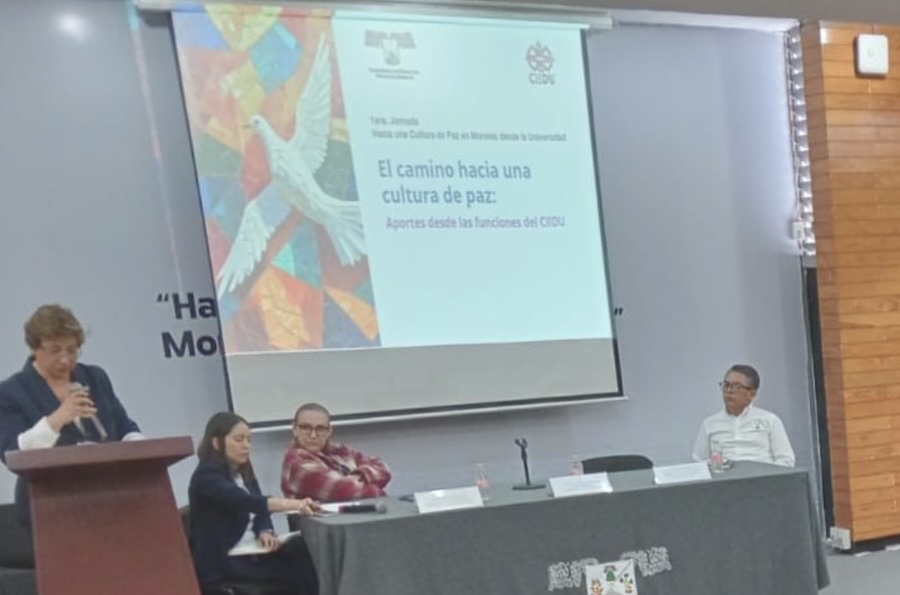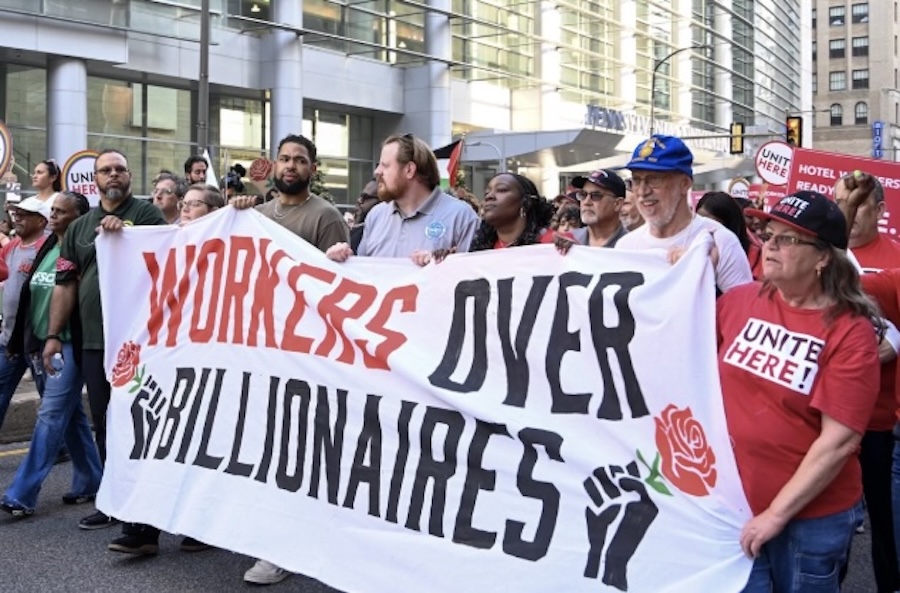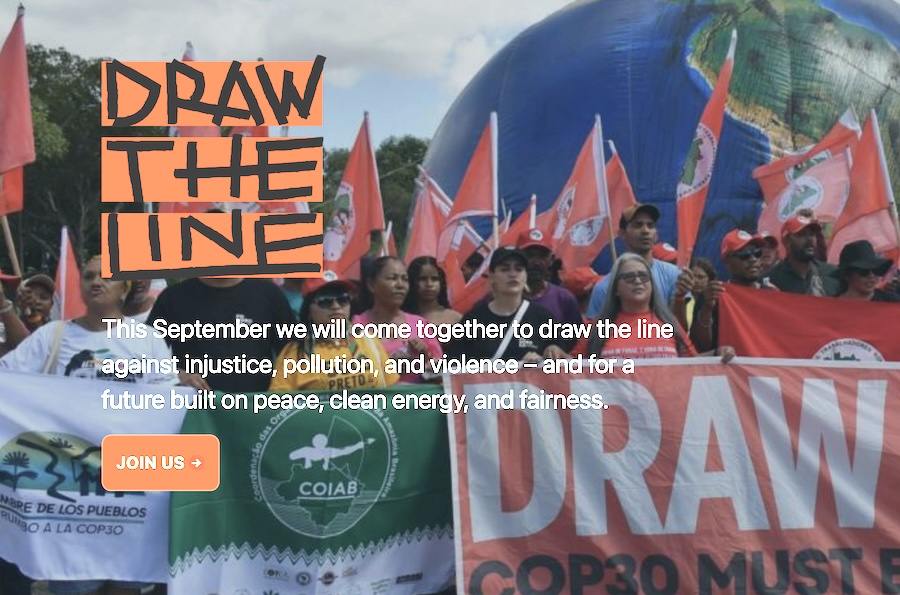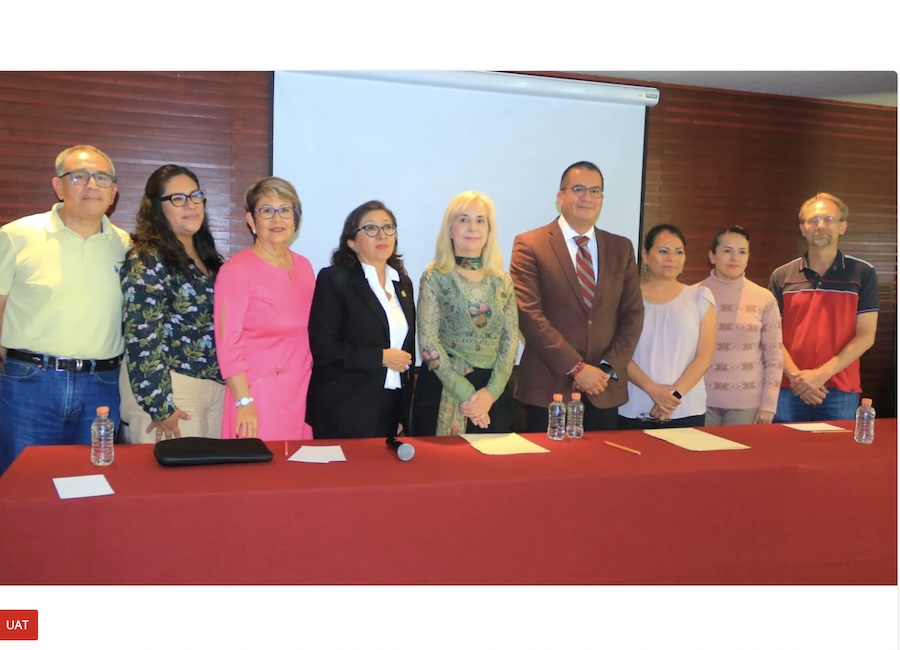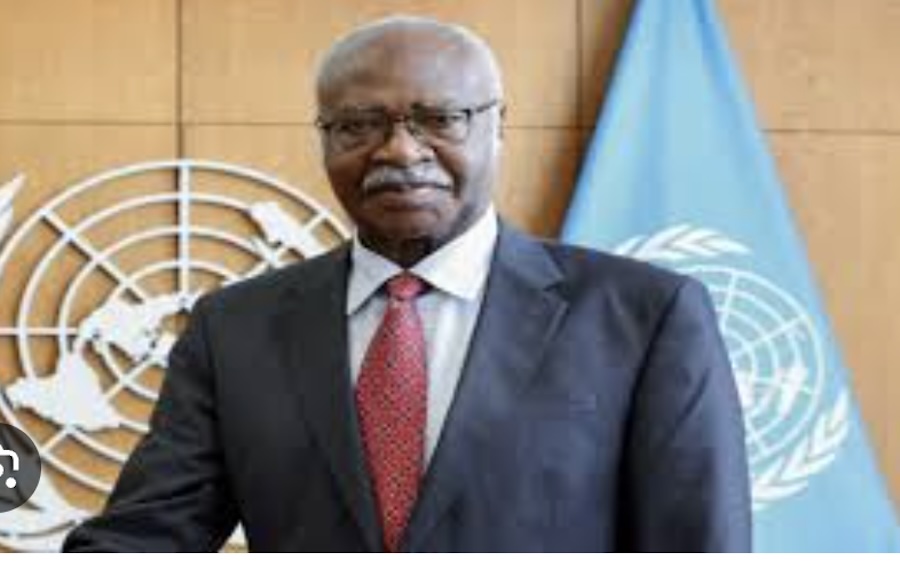The Israeli genocide continues, and people around the world return to the streets to protest and to try to end it.
In Australia on August 3, hundreds of thousands of people came out in the rain and shut down the Sydney Harbour Bridge. Since October 7, 2023, there have been weekly rallies in Sydney and across Australia. Yet August 3 saw broadener sections of the population mobilize in support of Palestine. Historic numbers of community groups, trade unions and political organizations endorsed the action while a number of NSW politicians – including from the Minns government – backed the historic “March for Humanity”.
Again, on August 24, pro-Palestinian rallies took place across Australia with large turnouts in state capitals Sydney, Brisbane and Melbourne. The Palestine Action Group said around 350,000 attended the rallies nationwide, including around 50,000 in Brisbane.
In London on August 9, an estimated 300,000 people marched through the center of the city for the 28th national demonstration for Palestine since October 2023. Along with the usual array of placards taking aim at Prime Minister Starmer and calling for action, there were noticeably more signs relating to the clampdown on democratic rights and civil liberties. The huge number of banners of local groups from across the country showed the truly national character of the march.
The London march took place despite efforts of the government to stop it, forbidding support for Palestine Action. Over 800 people gathered in Parliament Square to defy the proscription of Palestine Action, and the Met Police arrested 466 people – including a blind man in a wheelchair and a 90-year-old woman.
Thanks to the public pressure, the Australian government has announced it will recognize a Palestinian state. Many other governments are doing the same, including the UK despite its opposition to the pro-Palestinian demonstrations.
In Israel on August 17, The largest Israeli protest to date took place. About 500,000 people marched in Tel Aviv to demand an end to the war in Gaza and organizers say 1 million took part in demonstrations across the entire country. Most of the Israelis who were out on the streets “blame Netanyahu” for prioritizing his political survival over an end to the war. As one demonstrator told Democracy Now, “Last week, we decided to call to everyone in Israel, to all the citizens, to stop, take a day and stop all the country, in one saying: Please release the hostages, bring them home, and stop the war.”
Again on August 26, Tens of thousands of people took part in demonstrations across Israel, blocking highways on a “day of disruption” that aimed to push Benjamin Netanyahu into agreeing a deal to end the war and calling off plans to attack Gaza City. Relatives of hostages led the biggest march and rally in Tel Aviv, while in Jerusalem hundreds of people gathered outside the prime minister’s office as the security cabinet met to discuss the war. There were dozens of other protests around the country, including on the main highway to the northern city of Haifa and inside Ben Gurion airport.
One country is refusing to recognize a Palestinian state. The Israeli genocide cannot continue without the support of Donald Trump and the US government. For that reason, it is important that the Trump policies are coming under increasing opposition in the United States.
Hundreds of organizations are joining forces this fall to confront Trump & billionaire allies nationwide in the US, marking an historic collaboration of movements. Make Billionaires Pay is being convened by Desis Rising Up and Moving (DRUM), Women’s March, Climate Defenders, and 350.org, with over 100 endorsing organizations. It is part of a global week of action for climate justice, called “Draw the Line” (convened by 350.org, Demand Climate Justice, Climate Action Network and War on Want).
Also, unions and progressive organizations are planning nearly 1,000 “Workers Over Billionaires” demonstrations across the United States this Labor Day to protest President Donald Trump’s assault on workers’ rights. The day of national action has been organized by the May Day Strong coalition, which includes labor organizations like the AFL-CIO, American Federation of Teachers, and National Union of Healthcare Workers, as well as advocacy groups like Americans for Tax Fairness, Indivisible, Our Revolution, and Public Citizen.
At CPNN we believe that we must do all we can to express our solidarity with the people of Gaza and to stop and prevent the war crimes and genocide.
|
TOLERANCE & SOLIDARITY |
EDUCATION FOR PEACE |
DISARMAMENT & SECURITY |
FREE FLOW OF INFORMATION |
